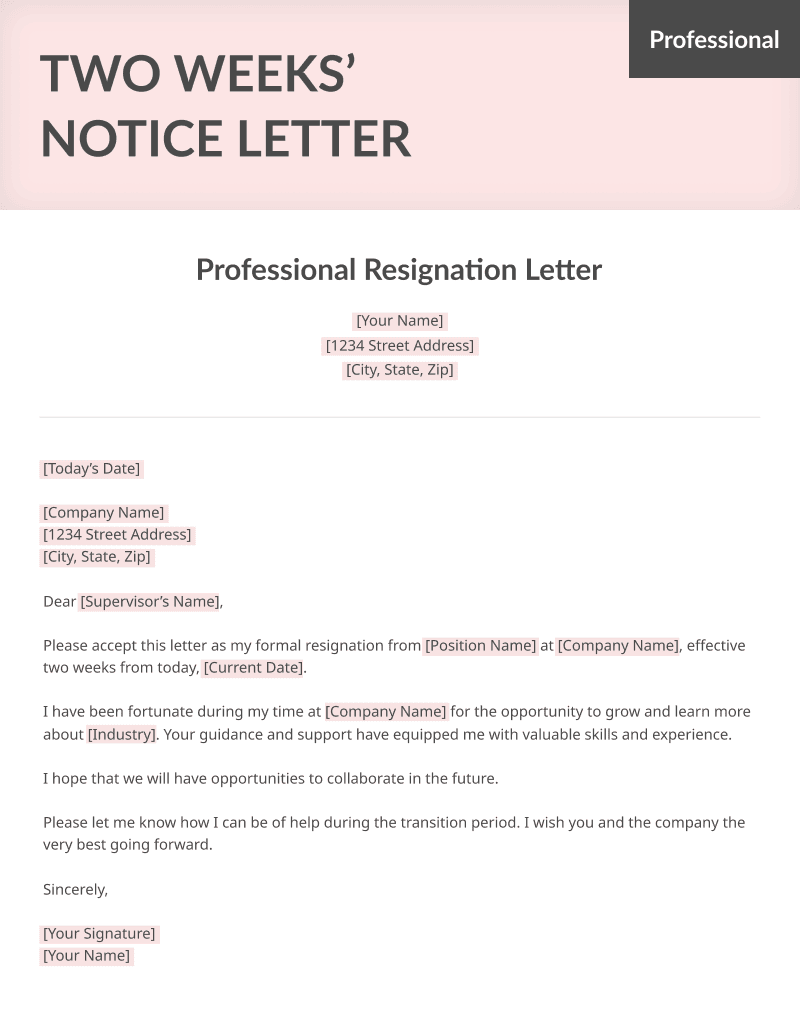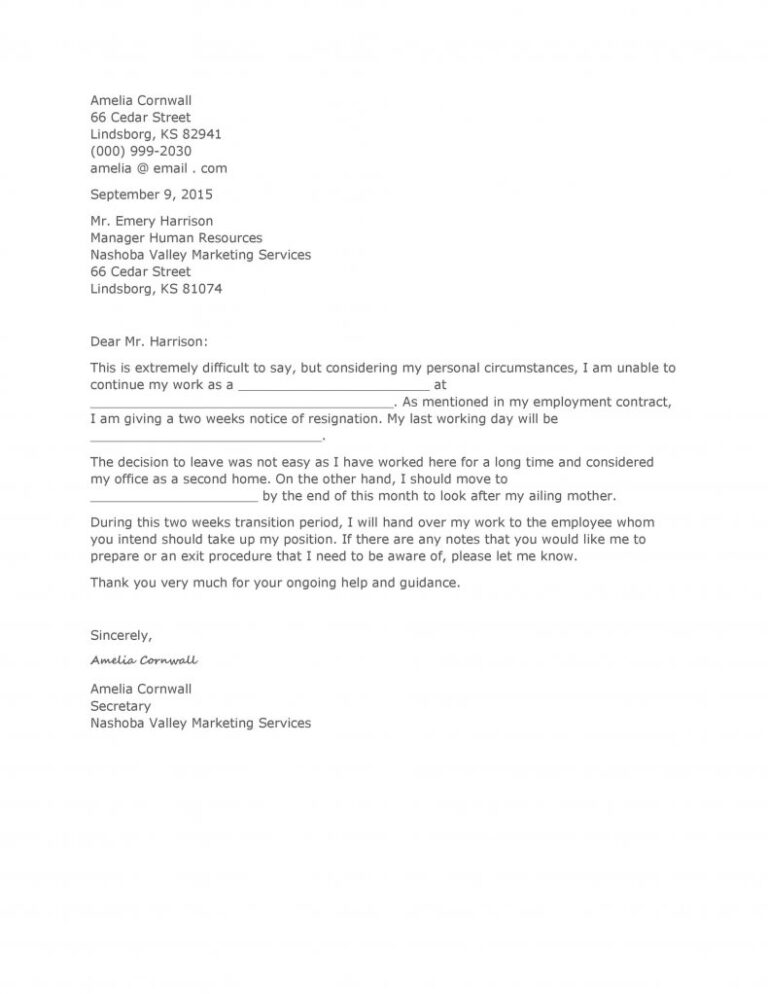
Of if your mental or physical health is at risk.When your work environment is unreasonably unsafe for your job duties.When a co-worker or supervisor is sexually harassing you.When a co-worker or supervisor is threatening to attack you.In some situations, you may not want to wait until after a required notice period before you stop going to work. When should I not give notice before I resign and stop going to work? However, if your employer has allowed other employees to work until the end of the notice period, you should consider giving the customary two-weeks' notice. If those previous co-workers have been forced to leave before the end of their notice period, the same could happen to you. Depending on your job role within the company, one week notice or even less could be appropriate if your resignation would not seriously disrupt your company's operations.īefore you consider giving a two weeks' notice, take a look at how your manager and company have dealt with previous co-workers who have resigned. Even though two weeks' notice is customary, you may want to shorten your notice to reduce the possibility of being terminated early. One way to minimize the risk of advance notice is to provide a short amount of notice. They should also look at their employer's previous actions toward other employees who have provided notice of resignation. ((Labor Code, § 2922.))Īll California workers should protect themselves when resigning by carefully examining their job role within the company. California is an at-will employment law state and your employer can terminate you before you planned to leave the company. Unfortunately, some companies abuse an employee’s two weeks' notice by terminating them before the end of the notice date. (2010) 186 Cal.App.4th 338.)) Risks of giving a two weeks' notice to your employer. Superior Court (2006) 39 Cal.4th 77, 92–93.)) As such, employers may not condition the payment of these final wages on the signing of a release or severance agreement. 897, 899, cited with approval by Smith v. Sunkist Growers (1957) 153 Cal.App.2d Supp. The purpose of this rule is to compel your employer to promptly pay your wages. Any accumulated and unused vacation time.Any unpaid wages minus any legal deductions.Labor Code, section 202, subdivision (a) requires employers, on your last day of work, to give you a pay check that includes: More importantly, giving your employer advance notice of at least 72 hours, entitles you to all your outstanding wages on your last day. Also, future employers may be concerned if you have left a prior job without giving two weeks' notice. Your former employer or supervisor might be more willing to serve as a reference, or they could speak highly of you if spontaneously asked.

Leaving a positive impression with your previous employer could make you a much more competitive candidate for future jobs. Your supervisor and workplace will appreciate a two weeks' notice because it gives them time to plan for your departure. Now that you know whether you can quit without a two weeks' notice, the next question is: should you? Benefits of giving a two weeks' notice to your employer.


Similarly, at-will employees can also leave their employer at any time, even without a two weeks' notice.

At-will employers can fire their employee at any time. This is because California is an at-will employment state. If neither the employment contract or any company policy requires the employee to give notice, no notice is legally required under California law.
TWO WEEKS NOTICE LETTER MANUAL
Employees should carefully read through their employment contract or human resources manual to determine their obligations before resigning. So, the employee could be contractually required to give a certain notice.Ĭompany policy may also require employees to give notice. In some cases, however, the terms of an employment contract could require a specific time or manner of notice. Generally, California employees are not required by law to give any advance notice to their employer before they quit their job.


 0 kommentar(er)
0 kommentar(er)
